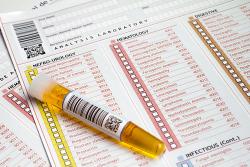While on the one hand, many are proclaiming 2015 to be the year that M-Health finally becomes mainstream (and certainly CMS’s announcement that they will pay $42 per month for remote care for chronic diseases helps with that), the opening day keynote at the M-Health Summit last week at the Gaylord National Harbor Convention Center, seemed to suggest we are in the trough of disillus
While on the one hand, many are proclaiming 2015 to be the year that M-Health finally becomes mainstream (and certainly CMS’s announcement that they will pay $42 per month for remote care for chronic diseases helps with that), the opening day keynote at the M-Health Summit last week at the Gaylord National Harbor Convention Center, seemed to suggest we are in the trough of disillusionment.
In particular Walgreens Chief Medical Officer Harry Lieder and Partner’s Center for Connected Health Director Joseph Kvedar were pragmatic to almost pessimistic about how mobile health would be adopted by consumers, healthcare systems, and payers. While being realistic about how mobile health can help, who can benefit, and who will actually pay for it is a conversation we all need to be having, the tone of the opening day keynote was not so much about celebrating successes but shoring up the audience to continue the good fight.
Walgreens CMO, Lieder outlined four areas where he thought that M-Health could have an impact across the care continuum:
- Health, fitness, and well-being
- Self-diagnosis
- Acute care
- Chronic care

Source: M-Health Summit
He then went on to debunk the myths of the quantified-self, that is that consumers will take their health in their own hands if presented with information. He also talked about why wellness is not popular with insurers and employers: the impact of wellness programs is generally only in the long-term, for example 10-20 years, and most employers and insurers hope that any individual won’t be their problem for that long. Taking the short term approach, Lieder said there were really only two ways to have a successful m-health startup today: enable people to bill for an existing CPT code or show significant cost savings to the healthcare system in 12-18 months. This is the current reality of the healthcare system, but certainly not how we’re going to drive change. CPT codes are backward looking not about new ways of delivering care, and while ROI needs to be forthcoming, managing patients over their lives needs to be the goal of the healthcare system.
So with this grounding in the somewhat depressing realities of today’s situation, Lieder then announced that Walgreens has partnered with MDLive to offer in-store telemedicine visits. Their recognition that consumer health alone doesn’t change behavior and that patients need support prompted the introduction of this new service, Lieder said “We need people available behind the device to change behavior.” If you can’t fix the system, reinvent it! One speaker called pharmacy the “last mile” that is, the patient loses connection to the health system at the pharmacy so brining the health system to the pharmacy might be the solution.
Joseph Kvedar of Partners.org asked if 2015 would be m-health’s coming out party but said that until applications hit certain key criteria we won’t see widespread adoption. He asked that application builders make m-health apps usable, social, personalized, and with relevance to everyday life. From a patient’s perspective applications should know the patient, engage the patient on his or her terms, and empower the patient. Kvedar did not seem to think that applications had nailed these things yet, especially in the area of usability and that we don’t get this right (and soon) m-health will “go down as another tech bubble.”

Source: MHealth Summit
M-health has had a lot of hype, and while this keynote provided some grounding in the reality of the market today, it seemed that this might have been a better keynote for the second or third day. Day one, it would have been nice to hear some success stories. After this keynote, I attended a session where one medical researcher spent most of the time explaining how she knew better on how to build good software than anything out there. We m-health entrepreneurs definitely need to get better at telling our success stories. It seems the press to date has been too much hype and not enough clinical substance and ROI to make our case.
At Wellpepper, we predict that if m-health companies can show real clinical evidence, tell real patient stories, and find partners in the ACOs and other organizations that are passionately trying to change healthcare in this country, then 2015 really will be the breakout year for M-Health, and next year’s keynote will see us out of the trough of disillusionment and firmly into real value.







